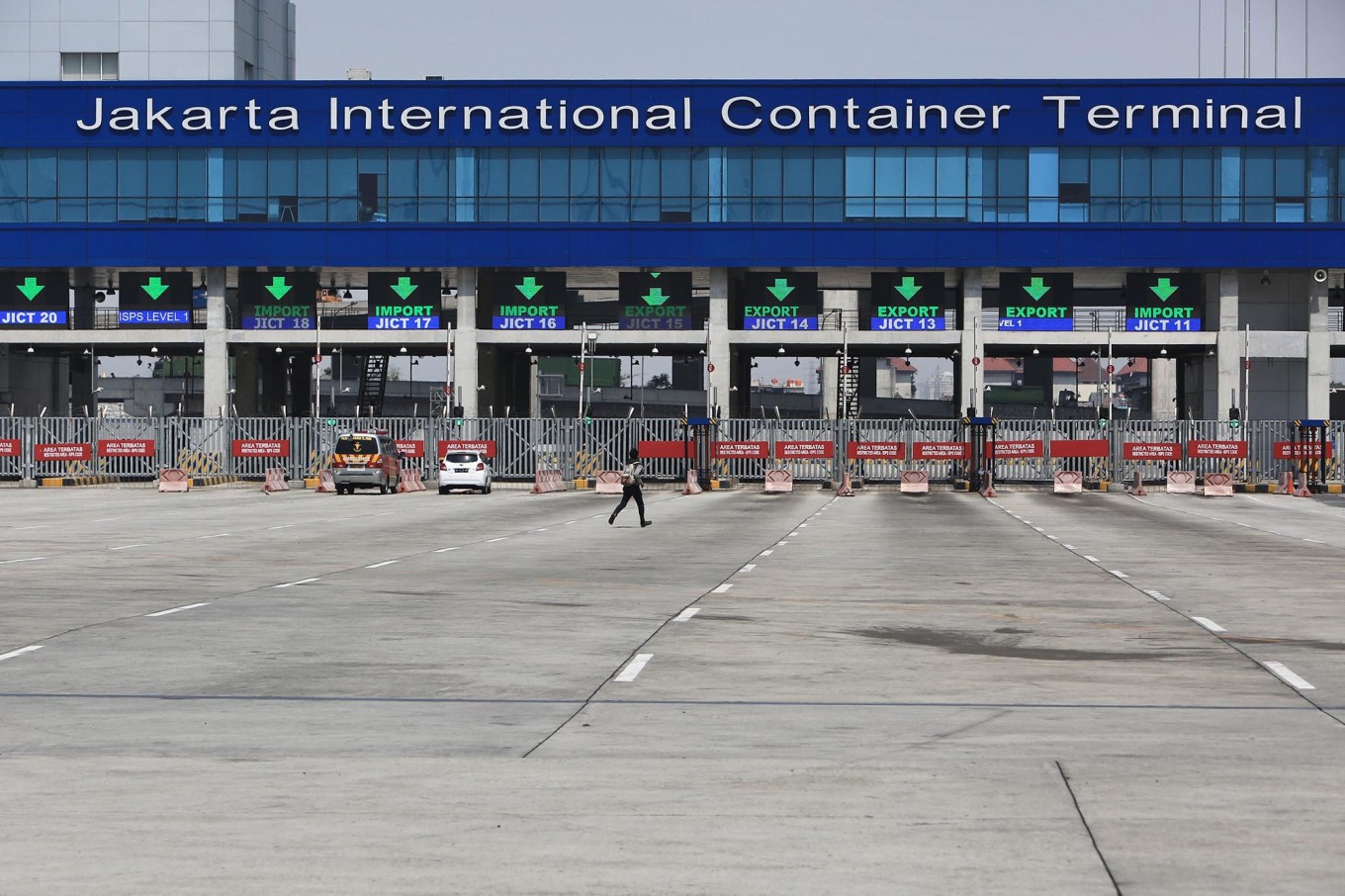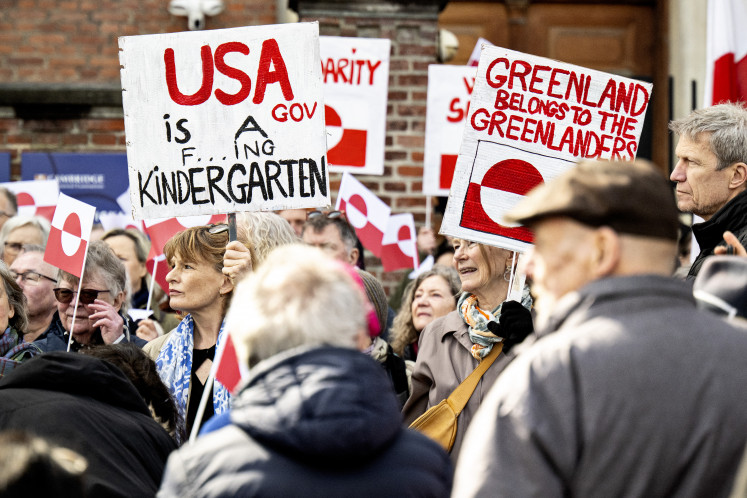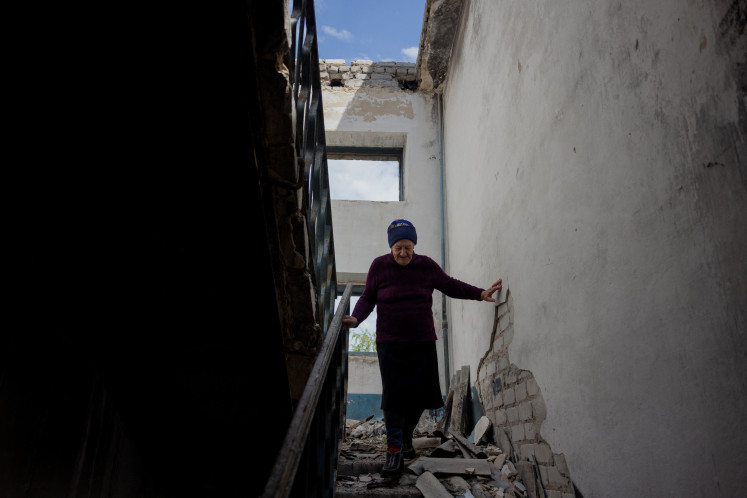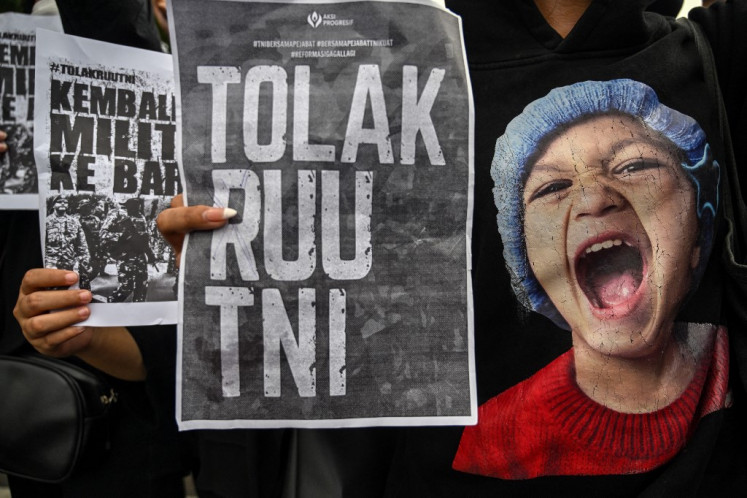EDITORIAL: Labor strike to oust Hutchison?
We suspect that the workers’ opposition to the 20-year extension of the contract is the main and broader agenda of the trade union.
Change text size
Gift Premium Articles
to Anyone
 The Jakarta International Container Terminal (JICT) at Tanjung Priok Port in North Jakarta appears deserted after more than 600 workers went on strike on Aug. 3. (JP/Dhoni Setiawan)
The Jakarta International Container Terminal (JICT) at Tanjung Priok Port in North Jakarta appears deserted after more than 600 workers went on strike on Aug. 3. (JP/Dhoni Setiawan)
D
eeper reading into developments concerning the operations of the Jakarta International Container Terminal (JICT) at Tanjung Priok Port over the past three years leads us to the suspicion that the root cause of the labor strike at the country’s biggest container terminal since Thursday is not related to basic labor rights and remuneration, which is apparently among the highest in the world for comparable jobs.
The JICT union leader cited a 42.50 percent cut in employee bonuses last year as the main trigger and primary reason, but the company’s finance director, Budi Cahyono, claims that the bonus, set at 7.50 percent of before-tax profit in 2016, was fully paid in May. True, the bonus was not as large as that in 2015, because the corporate profit declined last year as a result of a rise in the leasing fees that JICT paid to Pelindo II.
The bonus is only a small part of the main points of workers’ rights stipulated in the collective labor agreement (CLA). And Budi said JICT, a joint venture between state-owned Pelindo II port operator and Hong Kong’s Hutchison Port Holding’s (HPH), which holds the controlling ownership, had fulfilled all its obligations as stipulated in the CLA.
Hence, we suspect that the workers’ opposition to the 20-year extension of the contract by Pelindo II for HPH to operate JICT, which was signed in August 2014, is the main and broader agenda of the trade union. The main objective seems to completely oust HPH from JICT.
Businesswise, the extension of the contract signed five years before its expiration in 2019, is simply normal corporate practice. Such a deal is good for stability and certainty for future investment, as long as it is done with high standards of transparency and accountability, especially for such a big container terminal.
Under the extended contract, Pelindo II reportedly increased its stake in JICT to 51 percent from 49 percent, and HPH is required to pay US$250 million in advances to Pelindo II and to double leasing fees to $120 million per year.
Pelindo II independent oversight committee, which included personalities with impeccable integrity such as Erry Riyana Hardjapamekas, former vice chairman of the Corruption Eradication Commission (KPK), economist Faisal Basri and analyst Lin Che Wei, assessed the new contract agreement as a good corporate action that was done transparently in an accountable manner for the great benefit of the state company.
But controversy shrouds the contract extension, especially after the Transportation Ministry confirmed that Pelindo II had not obtained prior approval for the new agreement. The controversy developed into allegations of irregularities and animosity toward HPH after the Supreme Audit Agency concluded after a special audit, made at the request of the House of Representatives, that the agreement could cause $306 million in state losses. Unfortunately, the government has not clarified the controversy once and for all.
Relations between the trade union and the JICT management will remain testy and inimical unless the government resolves the controversy through comprehensive and credible clarification on the process of the JICT contract extension.









